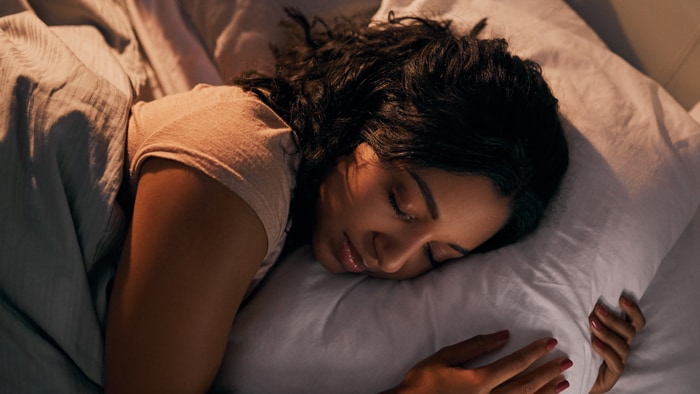Brew yourself a good night’s sleep
By Gina Roberts-Grey Sleep has eluded all of us at some point. Whether it’s because of stress, a lumpy mattress or a partner’s snoring, an estimated 50 million to 70 million Americans experience sleepless nights, according to the National Institutes of Health. But relief may be as easy as brewing a pot of tea. Many types of loose or bagged tea can help promote restful sleep, noted Elizabeth Trattner, an acupuncturist and oriental medicine consultant in Miami Beach, Fla. “When the goal is a good night’s sleep, most teas should be consumed 30 minutes to an hour before going to bed.” And make sure your brew is decaf—beverages with caffeine are helpful in the morning when your goal is staying awake for several hours, not when you’re trying to get to sleep. Stay away from anything caffeinated at least two hours before bedtime. To ward off any tossing and turning tonight, try a cup of one of these teas before going to bed: Chamomile Chamomile tea gets a lot of credit for being a good sleep-inducer, and studies indicate the praise may be deserved: Chamomile contains the flavonoid apeginin, an active ingredient that helps to increase relaxation and sedation. For chamomile to be effective, it must be a strong brew to maximize the amount of apeginin. If you are using teabags, use three bags per cup of tea. With loose tea, use two heaping teaspoons per cup. “And check the label to ensure the chamomile does not have black tea in it,“ Trattner warned. "That can keep you up, as opposed to putting you to sleep.” Valerian A natural substitute for medicines that treat anxiety disorders, this tea has a long history of use with insomnia. “This is very effective for sleep,” Trattner said. How valerian works is a bit of a mystery. There is no specific ingredient, but it is believed valerian increases the amount of chemicals in the brain and bloodstream that prevent anxiety and promote calmness. Catnip Catnip tea, made from the flowers and leaves of the everyday common catnip plant, contains a blend of vitamins and nutrients including calcium, iron, magnesium and potassium. When combined, these nutrients act much like melatonin and have a mild sedating effect. The plant calms brain activity to produce a relaxing effect on the nervous system. That’s why a cup of catnip tea can help you fall—and stay—asleep. However, pregnant women should not drink catnip tea or use any other form of this plant because it can cause uterine contractions. If you’re taking any prescriptions or have food allergies, check with your doctor before introducing any new sleep remedies—including tea—into your daily routine. Otherwise, drink up and snooze away!



